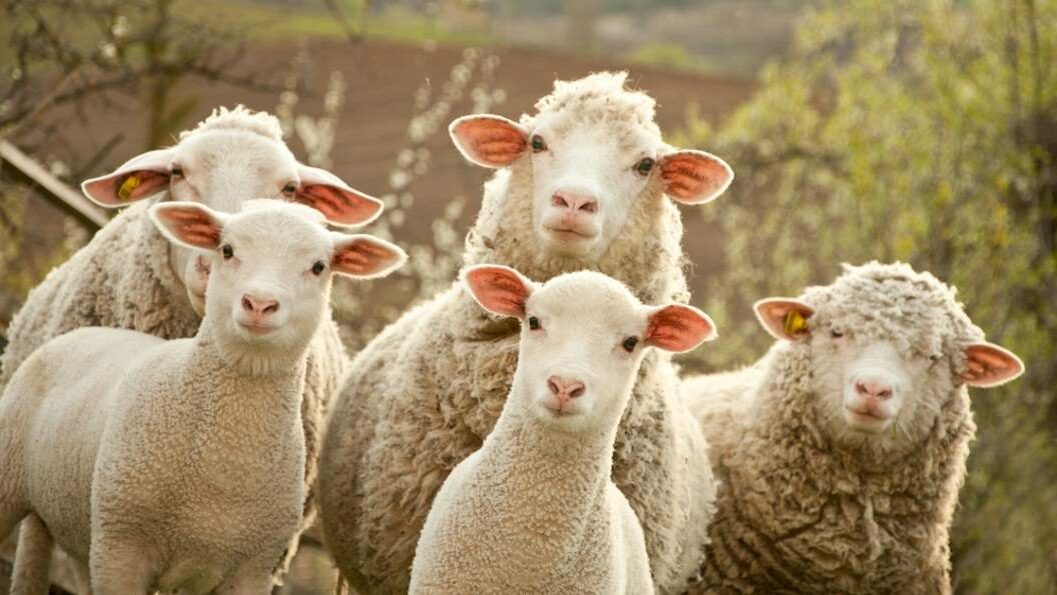Sheep are incredibly cute and productive animals and depending on the breed, can be raised for milk, meat, wool, and more. If you don’t know much about sheep, keep reading to learn how long do sheep live.
Climate can be a big factor in affecting life expectancy. However, with proper care, including nutritious food year round — even when it may be too cold or snowy to graze on pasture — as well as proper shelter, it is less of a concern.
Major factors affecting how long sheep live are: their diet, living conditions, access to health and medical care, the sheep breed and purpose for raising them (for milk vs meat as an example), and predators.
How Long Do Sheep Live
Sheep life expectancy for most breeds is comparable to that of a larger dog breed, spanning from 10 to 12 years. However, there is a lot of variation, particularly between sheep and crossbreds. When it comes to the average life span for sheep, farmers don’t just consider decades of existence. They also think about how productive they can be.
For instance, an ewe between the ages of 3 and 6 years old will be most productive and fruitful, but this will diminish through the years as older sheep become less productive and produce lower-quality fibers and milk than younger sheep. Learn about the differences between lamb vs sheep.
As farmers prefer a young lamb over the oldest sheep, many farm owners sell adult sheep to clear the way for younger, more productive ones. When raising meat sheep breeds, farmers will often cull their ewes after spring lambing.
What Affects Sheep Life Span
Diet of a Sheep
A sheep’s main meal includes a variety of grasses, legumes and forbs in both parched and natural forms, such as forage and grasslands. Sheep require about 50% soluble fiber and need adequate nutrients to ensure wellness and keep their rumen working. They must get 2% – 4% of their body mass in solid nutrients regularly.
Sheep that are not given enough grass or overindulge with undesirable vegetation and grain products, such as alfalfa hay, are more likely to develop health problems. Some of the health concerns can be obesity and bladder stones. On the other hand, if your sheep is able to forage and get most of its regular fiber from the grass, then you need to inspect it for the nutrients mentioned above. Again, this is imperative for your sheep’s health. So, make sure to check regularly.
Feeding sheep may change if they are unable to graze on pasture year round. Learn how many sheep per acre, especially if you live in an area that gets cold weather with less growth and snow.
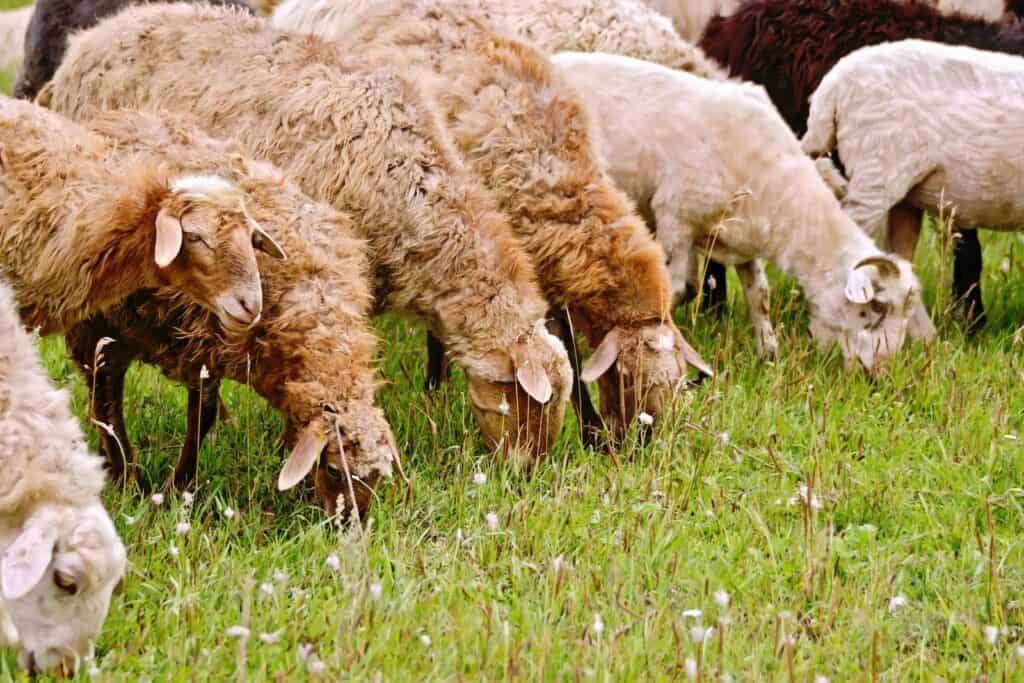
Living Conditions
Something that affects how long sheep live is their living conditions and environment. It is not unusual for female sheep to live far shorter in extreme conditions because their teeth deteriorate and wear down more quickly than in a more desirable location. This can make it very difficult for a ewe to stay in shape, eat themselves, and feed their little ones.
In these conditions, many producers will cull sheep when they are young. However, if a ewe is fed high-quality pasture and kept nourished, she can live and work for up to 10 years.
Don’t Overcrowd Sheep
There should be only 6 sheep for every acre of pasture area and at least twenty-five to fifty square feet of living area in a well-aerated space. How many sheep per acre also depends on the quality of the pasture (what is growing) and the climate (if sheep can graze year round).
Keep More than One Sheep
Sheep are social animals. Be sure never to keep only one sheep. It is healthier for them to be in a small flock than alone.
In addition to being social, sheep rely on each other for protection. Their instinct is to band together for protection. When they are grazing or moving around — such as going from the pasture to the barn — they fare better when they see other sheep. Shepherds use this instinct to their advantage as they know the sheep will follow each other.
Shelter Space for a Sheep
Sheep with an insufficient living area are more likely to develop ailments caused by unhygienic farming practices or severe infections that spread quickly through all the livestock. Furthermore, they might not always get enough to eat if they do not get sufficient grazing area, or they may contract diseases, just as they can in small cages.
In addition, sheep need to be protected from weather and should have access to a well-ventilated, draft-free shelter during cold months. Consider predators in your area to be sure the shelter will secure your flock.
Shearing Sheep
While all sheep wool isn’t desirable to market, it is important to learn how to shear a sheep to keep it cool in the warm months. You can also hire a professional sheep shearer which will typically charge by head of sheep. Shorn sheep will have less parasites such as ticks and mites. They will be less prone to flystrike as well.
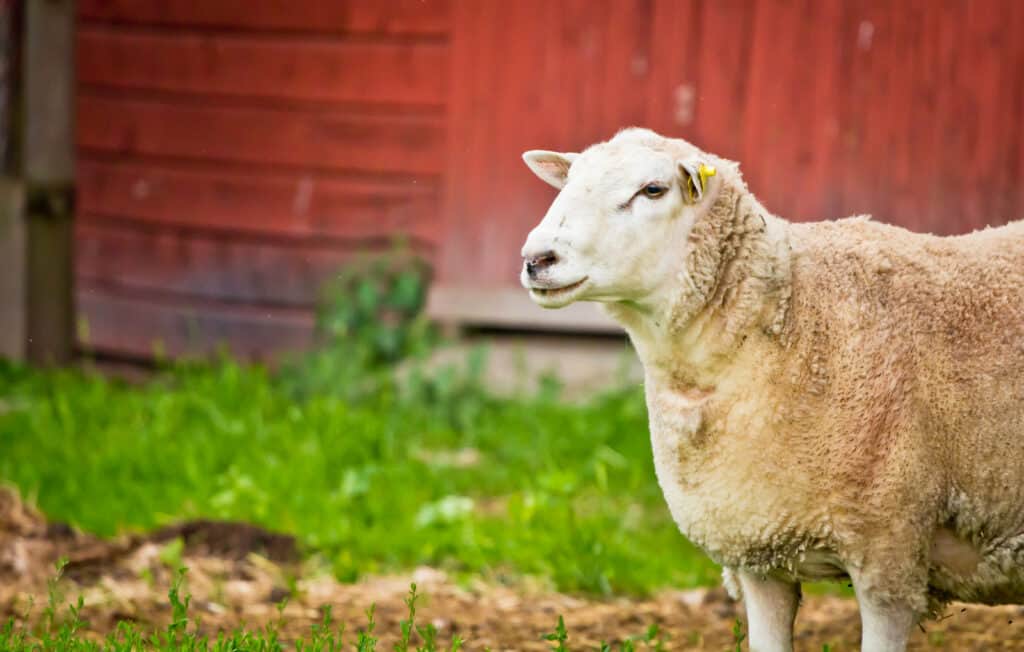
Health Care Facilities
A big factor in determining how long do sheep live is access to medical care. Sheep are vulnerable to a variety of illnesses. Even with a great deworming plan, parasites are one of the most troublesome problems. These could not only harm sheep but also reduce their productivity.
It isn’t unusual for female sheep to die during or after lambing and for baby sheep to pass away during the lambing phase from mastitis or another infection.
Sheep will live longer if they have access to quality care, but this isn’t a guarantee. Sadly, science and medicine cannot cure all diseases, and even when they can, not everybody has access to adequate care required to address specific problems.
Medical care increases an animal’s life expectancy, but it cannot assure it. Dietary supplements, vaccinations, and pathogen treatments can help sheep live longer lives.
Sheep Breed Can Determine Lifespan
- Dorper sheep: 7 years
- Shetland sheep lifespan: 10 – 12 years
- Rambouillet sheep live 10 – 12 years
- Merino sheep life expectancy is 10 – 12 years
- Bighorn sheep: 10 – 15 years
- Suffolk sheep live for 11 – 13 years on average
- Icelandic sheep life expectancy: 12 – 14 years
- Jacob sheep: 15 – 20 years
- Cheviot sheep: 10 – 12 years
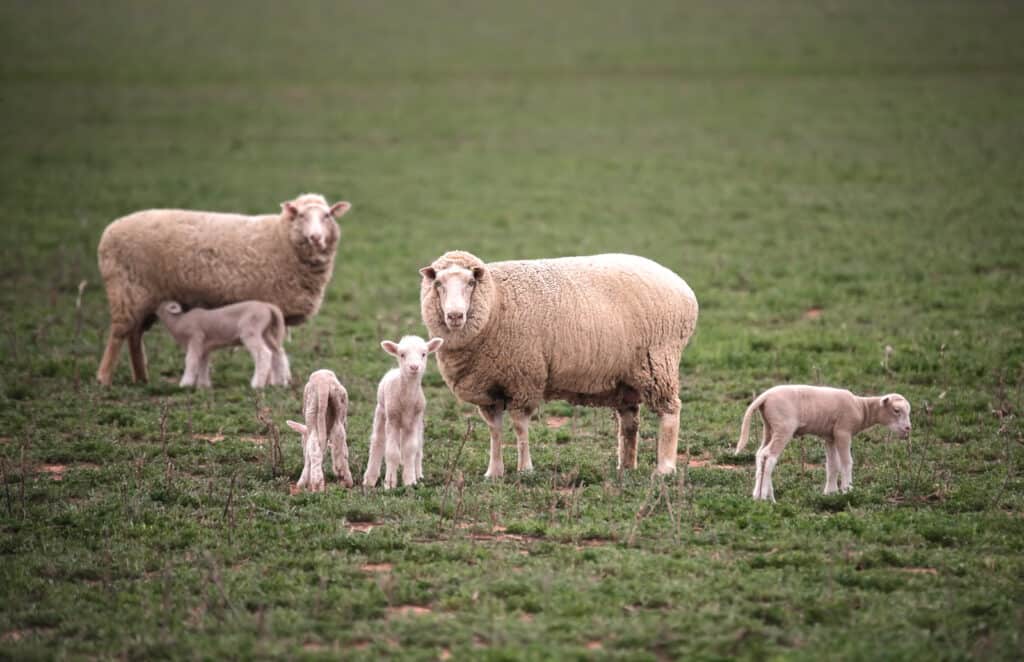
Purpose of Raising and Breeding the Sheep
The purpose of breeding the sheep determines the life of a sheep. This may seem obvious but how long do sheep live will be determined by the farmer if they are raising sheep for meat. Sheep that will provide wool will live longer than sheep than will give meat to the farmer. If a farmer purchases sheep only to slaughter them, sheep only get to live a few months or a single breeding season.
If you are raising dairy sheep, it’s important to milk ewes once or twice a day, unless they have recently lambed.
Sheep Predators
Predators pose a significant danger to domesticated sheep’s lives. Wild animals, like jackals, feral cats, cougars, greyhounds, wild boars, and mountain lions, are among the top predators. A single attack by a boar can kill a small flock of domestic sheep in one go. Lambs and smaller sheep breeds are prey to relatively small predators like falcons.
How Long Do Lambs Live
If all goes well, lambs will grow to become adult sheep. They will be called ewes if they are female and rams if they are male. If someone is raising lambs for meat, they will be slaughtered young and will have a shorter lifespan than if they are allowed to grow until they die of natural causes.
In addition, lambs can be easy targets for predators. As a result, how well a lamb is protected from those around it will determine the lamb lifespan.
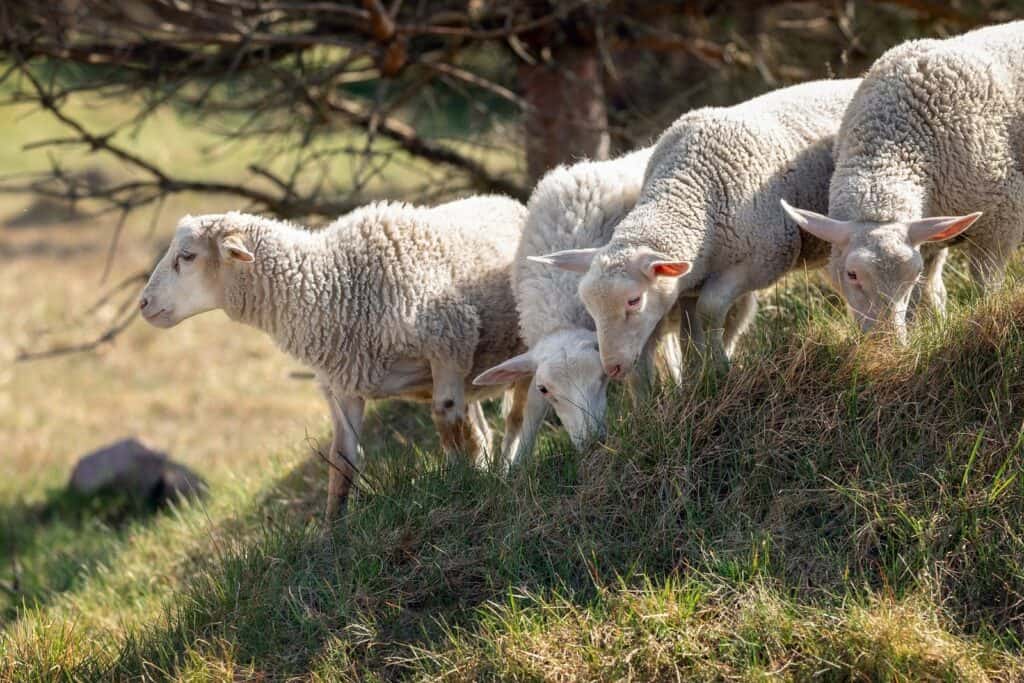
How Long Does a Sheep Live For
There are many factors that determine how long sheep live. With care and attention, sheep can live long and healthy lives. Typical life expectancy is between 10 – 12 years old unless of course, they are slaughtered for meat earlier.
Sheep breeders will guarantee that their domesticated sheep are well-cared for all their lives, regardless of how permanent or temporary those lives could be. Sheep reared for meat are likely to live shorter lives than sheep bred for wool, but they could live much longer with adequate care, regardless of the sheep breed.
Conclusion
Sheep are a key part of the agricultural industry. In the US, sheep are a popular livestock animal. Ewes give birth once in 12 months, birthing 1 – 3 lambs. Couple this with the milk they produce, and sheep need to be fed a nutritional diet to keep up with all they provide.
The best way to help sheep live longer is by providing them with proper care. In general, sheep can live for 10 – 12 years with basic attention and care.
Before bringing sheep to your small farm or homestead, consider the purpose you want to raise them. Are you looking for meat, milk, fibers, pasture management, or something else. Consider also other livestock you may be raising and how you can care for livestock properly and for the long-term. Cattle, for instance, live much longer than sheep, and sheep have a higher life expectancy than chickens.
Difference between sheep and goats
Fat tailed sheep for meat, dairy and tail fat

